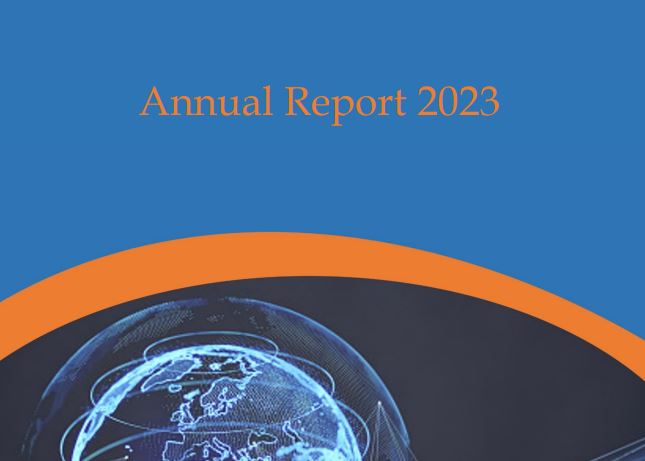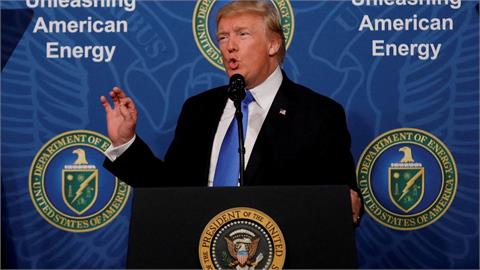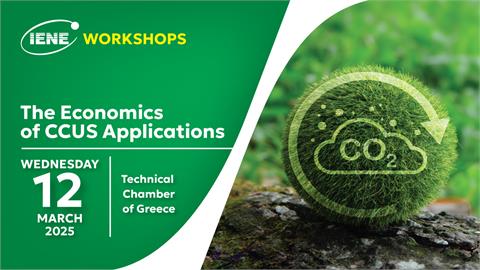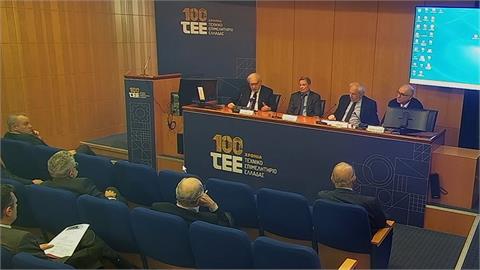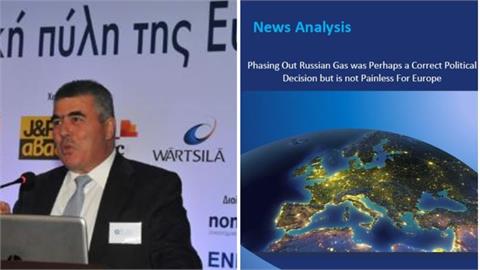The Institute’s Annual Report for 2023, which also includes the accounts of last year, was approved by the partners of IENE following the 36th General Assembly of the Board of Governors which was successfully held online on July 30
The Institute’s Annual Report for 2023, which also includes the accounts of last year, was approved by the partners of IENE following the 36th General Assembly of the Board of Governors which was successfully held online on July 30. A total of 26 partners participated in an hour and half long meeting which among others discussed the current and planned activities of the Institute and its long term strategy options.
Following a presentation of the report for 2023, which had been send beforehand to all partners, and a detailed analysis of the finances of the Institute by the chairman, Mr. Costis Stambolis, the report was unanimously approved by the participating partners.
The Annual Report, which is available here, among others covers administrative and Human Resources issues, the implementation of IENE’ s strategic goals, an overview of last year’s activities, the activities of the Institute’s scientific committees and its research programme and the challenges facing the organization in view of fast changing economic and geopolitical conditions.
The AGM also approved the election of Mr. Theodore Terzopoulos as member of the Institute’s Executive Committee following the resignation of Dr. Costas Karayianakos earlier in July for personal reasons.
The chairman then briefed the partners on the Institute’s activities during the first half of 2024 and then presented in outline form the planned activities for the rest of the year and for 2025. Concerning the first six months of 2024 the chairman explained that the Institute placed priority to activities in the region having organised a joint conference with ROEC in Bucharest on March 13 on decarbonisation policies in SEE between climate change and war, and then the 3d Tirana Energy Forum in Albania on May 30.
On April 25 the Institute convened in Istanbul the first ever joint Greek-Turkish Energy Forum which proved a great success in view of its large participation and most interesting content, having managed to galvanise attention from industry, academia and government from both countries. In addition to the above IENE organised its annual SEE Energy Dialogue in Thessaloniki, now in its 15th edition, on June 19/20 which attracted considerable attention from all countries in the region but also from some international organisations. Other events included a one day workshop in Athens on renewables and energy efficiency and a colloquium on the EEZ and its importance for the exploration of energy resources, including hydrocarbons and offshore wind energy.
The AGM concluded with a wide ranging discussion among the partners on the Institute’s new strategy, titled IENE Vision 2030, which is currently under preparation. All partners agreed on the need to prepare in detail a new strategy for the Institute which is deemed necessary as conditions have dramatically changed over the last 6 years, since IENE adopted its last strategy. As the chairman observed “we are witnessing an avalanche of developments in technology, the economy and the broader geopolitical environment which call for the study and laying out of a new strategy which should govern the Institute’s progress over the next few years”. A view which was shared by all participating partners.
A wide ranging discussion ensued with interesting interventions by Prof. Stavri Dhima from Albania, Mr. Mihail Mihailovic from Serbia, Dr. Amit Mor from Israel, Dr. Halil Yurdakul Yigiguden and Mr. Gokhan Yardim from Turkey and Mirsad Sabanovic from Bosnia -Herzegovina. Christos Dimas, the Deputy Chairman of IENE and Costas Theofylactos, the Secretary General also joined the discussion tabling specific proposals.
